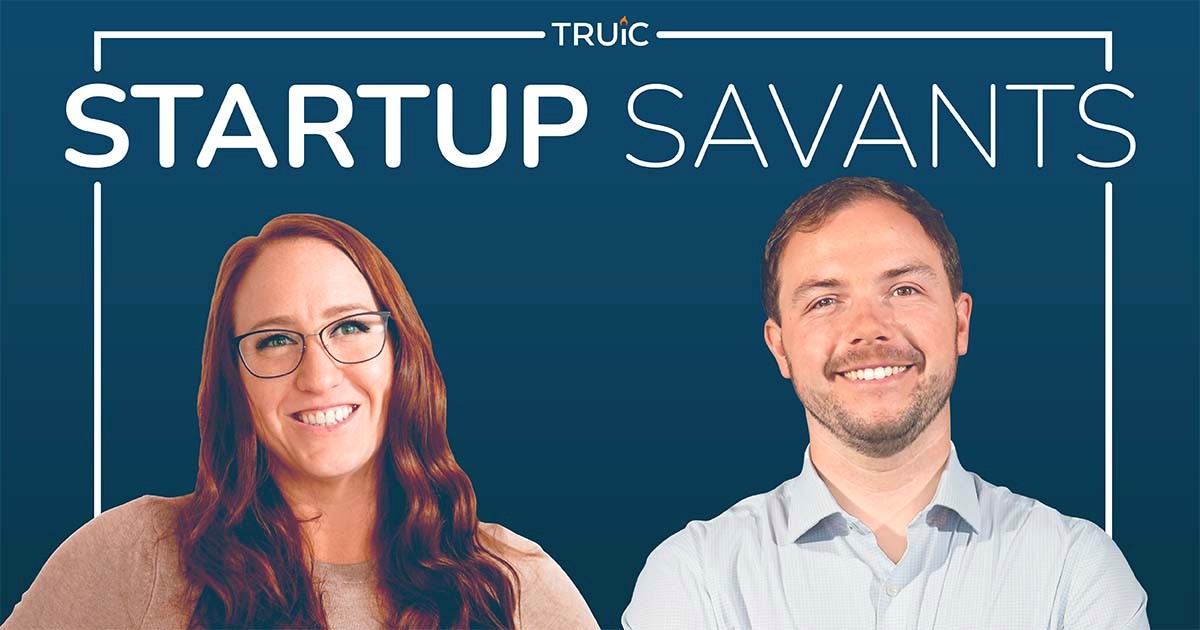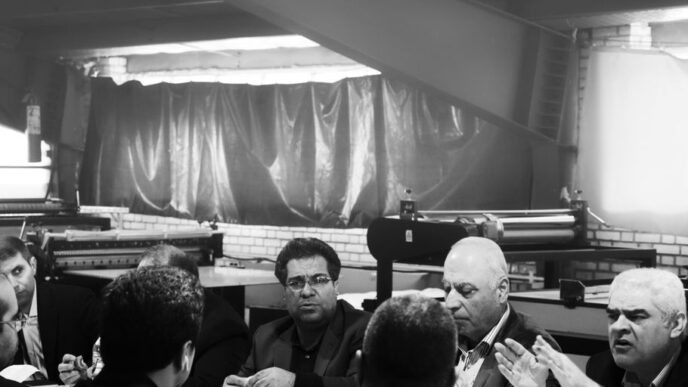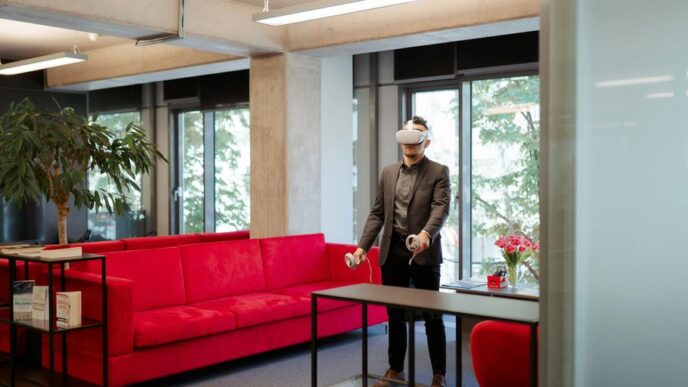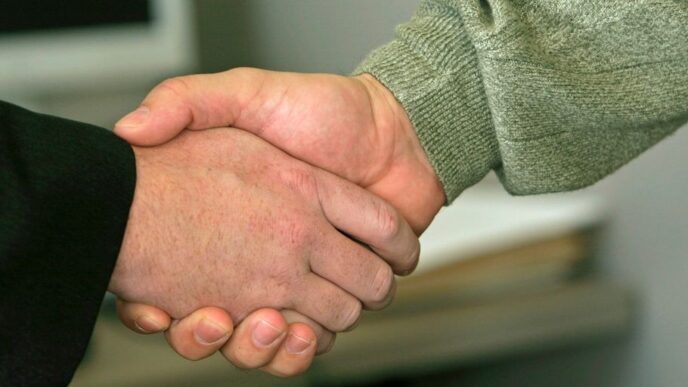In this episode, Startup Savants ventures into the weird and wonderful world of jigsaw puzzles with an invitation to JIGGY founder Kaylin Marcotte. Almost single-handedly, Kaylin has built a business based on jigsaw puzzles. She’s managed to successfully navigate the perils most startups encounter and did it at a time when the pandemic was raging as well. Now with an enterprise valuation of millions, JIGGY is tapping into a vast distribution network. Don’t be surprised to see JIGGY puzzles when you next visit your favorite retailer.
Listen to more episodes of Startup Savants podcast on Apple Podcasts, Spotify, or wherever you listen to podcasts for more startup stories, entrepreneur advice, and industry insights.
What made you start playing with jigsaw puzzles?
“My journey with jigsaw puzzles began in 2014. I was the first employee at theSkimm, so that was my first entry into the startup world, startup life, living that grind in the early days. And it was an incredible experience but definitely, stressful and all-consuming. I was on screens all day long. And so I was looking for a way to unwind and unplug, and it was 2014, ’15. We were starting to have these conversations around burnout and tech fatigue. And I wanted to get away from screens and do something with my hands. And I rediscovered my love of puzzles, which I’d done as a kid, but not for 15 or so years. And I did one. It clicked immediately. And I started doing about a 1,000-piece puzzle every week.”
What started you on the road to JIGGY?
“And so I was constantly looking for more — buying more, going to toy stores online, and all the ones I could find were just, I felt, really outdated and cheesy. Grandma’s puzzles, stock photography, the same cardboard box, and the idea planted then of just, what would it look like if I made my dream puzzle and what parts of the puzzle experience would I want to innovate on and take my approach to.”
How did commercializing this idea of innovating puzzles develop?
“This was definitely a slow burn of an idea. Kept coming back to me, kept taking more and more shape. And ultimately what came together and what I ended up launching within 2019 is JIGGY, and we partner with emerging female artists and turn their artwork into the puzzle design.”
What aspects of JIGGY puzzles did you think might be appealing?
“So that was pain point number one of just the design itself that you’re spending eight, 10, 12 hours with living inside of putting together piece by piece. And part two is, what do you do with the puzzle once you’re done? And for me, I was pretty sentimental of these hours I had just spent, I didn’t want to tear it apart right away. And so we include puzzle glue with each JIGGY so that you can preserve it once you’re done buying the pieces and preserve it, display it as wall art. So our mission is to get people away from screens, reconnecting with downtime, mindfulness, and then supporting our artist partners, who we do profit sharing with and get a percentage of every sale.”
How challenging was it to acquire the skills and knowledge to run the business?
“Steep learning curve there, obviously, there were some very transferable things from theSkimm experience, but JIGGY being my first physical product and all the whole world of supply chain, manufacturing, fulfillment, customer service in that way was brand new. And not only was it brand new to me, it was also from four months in a constantly moving target because we launched November 2019. So three, four months later, the COVID just shook, as many of us know and have felt the impacts of this supply chain world, and sourcing products, freight, everything just got more complicated and more expensive. So it was bootstrapping. So trying to do everything in the scrappiest way possible, for the first or second time ever brought a ton of challenges.”
What are some of the early challenges you faced?
“And it ended up being much more challenging too, especially since so much of our product is custom to find someone willing, able, and willing to take that bet on us. Pre-revenue, pre-launch, it’s the air investment too, to even fire up the machines for you. So that was really much more of a partnership than I think I previously expected. And then again, doing every piece of our packaging, fully custom, the pieces coming to reusable glass jar with a Coke lid, we include the puzzle glue.
That’s not marketed as puzzle glue. We didn’t want to use plastic, so it comes in an aluminum tube, which was apparently for hair cream, which is a thing. So just piecemealing each aspect of the packaging together was almost a year-long process. During that time, parallel path with curating the art, figuring out that relationship with the artists, these royalties, how do we support them and help really monetize their work. And then the tech side and the website and building that out. So those were the three processes I did for about a year before launching.”
How did you establish relationships with artists?
“And I just started going to fairs and shows based in New York, so plenty of opportunities to scout new artists. And I really approached it from both what would look good, just completed and finished, and something you’d want to frame on the wall. And also what would make for a really fun puzzle experience, certainly detail, and color, and saturation, and layers. And so I just started with that lens in mind, going to shows and fairs and found the first six artists we worked with for our launch collection. [I] reached out to them, wasn’t really sure what if they would think it’s silly or just not an application of their work they were interested in, but actually it was a great reception. I think they were open to seeing what the experience would be like with people then puzzling their work.”
In the beginning, how did you think JIGGY could help artists?
“It’s honestly my favorite and the aspect of the business that really keeps me going when I run out of energy. So I grew up in Los Angeles, and my mother worked in arts education my entire life. And so I was always surrounded by the art community there. And I really saw how even if you had made it, if you will, and have gallery representation are participating in exhibits, now of course like Instagram, building a following, it’s still so hard to actually monetize your work. And I think artists oftentimes just copyright. And especially social media and sharing, it’s hard to really correctly credit and pay artists for their work. So wanted to make sure from the beginning we had that really baked into the business model.”
How have artists responded to the JIGGY idea?
“And now that we have had some visibility, we have a lot of inbound. So we have basically an open submission process, and any artist can submit their work. We now have a few different use cases, which is great. Some are just our curated collections, which we do seasonally, but we have also started work with partners and brands and doing custom puzzles or collaboration. So we’ll pull from our artist community to commission an original for a brand that wants to do a custom puzzle. And actually, our next collection that’s launching this spring was the result of our first community art voting contest. And so artists, I think we had over 500 submit their work, and our community of puzzlers went through and voted for their favorites. And so the winners of that are our next collection launching soon.”
How do you deal with imposter syndrome? And do you have any advice for entrepreneurs working through that?
“Yeah. I definitely have it, deal with it. And I think the more you grow, then the bigger conversations you’re talking to like Kacey Musgraves managers. And I feel like on the one hand, the more experience you have or, the bigger your brand gets, maybe the less you should have it because you did this thing and you have this big brand. But then you’re also, I think hopefully leveling up and talking in bigger conversations in bigger rooms. So I think back to theSkimm, the demystifying, the more that I just hear and see and network and talk to friends and other founders, and really just the shared experiences, and really hearing and seeing that everyone at least feels like they’re winging it. And to have that be an open conversation and more normalized really, really helps.”













